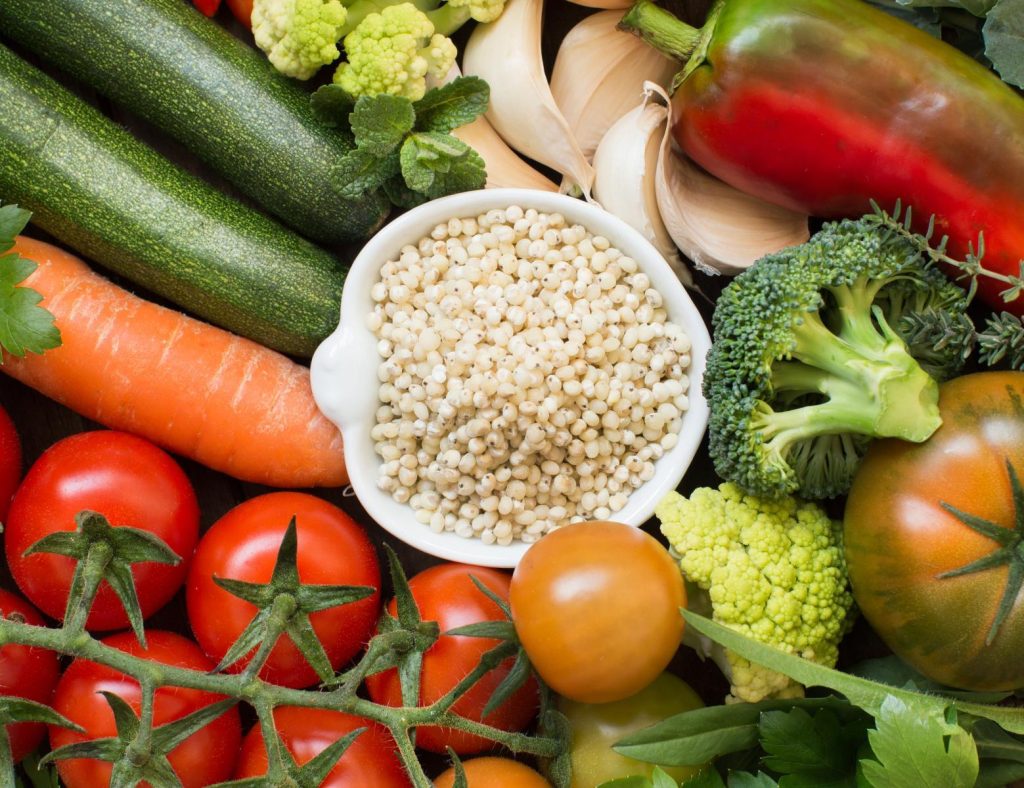Open up food sources to help reduce the risk of coronary heart disease from genetics, sources of quality protein, vegetables, fruits, grains and techniques for eating healthy food.
If someone in your family has a history of coronary heart disease, you should start reducing your risk factors for the disease by consulting a doctor, checking your cholesterol level, blood sugar level, measuring your blood pressure, stopping smoking, starting exercise, losing weight, and changing your self-care behavior. foodEven if you are not old and do not have a history of coronary heart disease in your family, it is very important that everyone should have knowledge for a quality plate of food!

Heart Healthy Foods
- Focus on eating fish, a source of protein and other nutrients, including omega-3 fatty acids, which can help reduce the risk of heart disease and stroke.
- Soybeans, black sesame, and mushrooms help reduce blood fat and cholesterol.
- Lotus seeds help lower blood pressure and increase the force of heart contractions.
- Garlic helps lower cholesterol, lower blood pressure and prevents blood clots.
- Basil and Gotu Kola help prevent coronary heart disease.
- Carrots and sweet potatoes help prevent coronary artery disease.
- Sardines and trout help reduce the risk of blood vessel wall clogging.
- Avocado, berries, salmon help reduce bad fat and increase good fat.
Techniques to reduce the risk of heart disease
- Avoid consuming foods that are high in saturated fat and trans fat, such as palm oil, coconut oil, coconut milk, animal oils or fats, animal skin, butter, cream, margarine, artificial cream, thick salad dressings, fried foods, snacks, various types of baked goods such as pies, cakes, cookies, croissants, etc.
- Choose oils that contain unsaturated fats for cooking, such as rice bran oil, sunflower oil, soybean oil, corn oil, olive oil, etc.
- Avoid consuming foods high in cholesterol, sugar, sweets and soft drinks as these increase the risk of heart disease.
- Consume lean meat, fish, egg whites, alternating with plant-based protein such as soybeans and tofu in some meals in appropriate amounts. คาสิโนออนไลน์ UFABET ฝากถอนรวดเร็ว เริ่มต้นเล่นง่าย Also, choose to consume low-fat or low-fat dairy products. Meat and milk are sources of protein, but consuming too much meat will cause you to receive a lot of fat embedded in the meat, which increases the risk of heart disease.
- Eat 5-6 small meals a day. Skipping meals often makes you eat more at the next meal. Eating 5-6 small meals a day helps control blood sugar levels, increases fat burning efficiency, helps control cholesterol levels and helps control body weight.
- Reduce consumption of salt, soy sauce, fish sauce and seasoning sauce. Avoid consuming pickled foods, dried foods, and processed foods to help control blood pressure.
- Try to avoid salty foods or reduce your salt intake.
- Drink enough water. Water is a component of the body and is important for the body to function. It helps you feel refreshed.
In addition, you should see a doctor regularly for a health check-up. If you have any abnormal symptoms, see a doctor immediately.